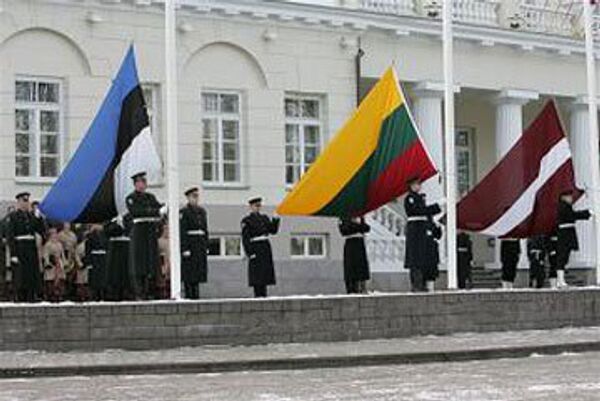MOSCOW. (Shakhirezada Yeraliyeva for RIA Novosti) - Ethnic minorities, without which cultural, economic and political life is unimaginable, are growing into a painful problem for each country and the international community as a whole.
Post-Soviet space is no exception to this "rule," but the situation is especially complicated in the Baltic countries, where the authorities have assumed an openly negative attitude to the non-titular nations.
The problem has recently been addressed by the Historical Perspective Foundation of Natalia Narochnitskaya and the Paris branch of the Moscow-based Institute for Democracy and Cooperation. They have ordered a comprehensive survey of the social situation of ethnic minorities in Estonia and Latvia.
The results of the survey, conducted by the Estonian and Latvian human rights centers, have been summed up in a book on the ethnic minorities' rights in the two countries.
The two centers analyzed legal, cultural, religious, economic and social aspects of life of ethnic minorities in Estonia and Latvia, as well as statistics. They also inspected compliance of the two countries' laws to their government's commitments and international legal norms.
The authors say that their book differs from many other publications on this issue in that it is a scientific study free from political leanings. It is based on reliable documents and provides references to the sources of information.
The survey has shown that violations of the ethnic minorities' rights in Estonia and Latvia are more numerous than the analysts expected, and that the two countries are not liberal democracies of the Western type despite their claim to the contrary.
For example, Russian-speaking "non-citizens" account for 16.4% of population in Latvia and 7.7% in Estonia and have very little, if any, influence on their countries' politics and account for the majority of jobless.
The analysis of the two countries' legislation exposed infringements on the minorities' rights for ethnic reasons, and also violations of the Framework Convention for the Protection of National Minorities (FCNM), which Latvia ratified in 2005.
The two human rights centers also studied the situation in education. In the past, schools with tuition in Russian provided the best education in Estonia and Latvia, but their standards have plunged as a result of the local education reforms. And now tuition in the Russian language is being gradually prohibited there.
Although ethnic minorities are active economically, the employment market of Latvia and Estonia is dominated by the titular nations. It is extremely difficult for Russian speakers to find employment with the local government bodies. The survey showed that Russians make up only 5.7% of the staff of Latvian ministries.
Moreover, Russian speakers have no say on political problems.
Lawyer Anatoly Kucherena, a member of Russia's Public Chamber, said that the Latvian and Estonian authorities simply refuse to notice these problems.
"In fact, these states' authorities themselves create mechanisms for infringing on the rights of ethnic minorities," he said during the presentation of the book.
The survey has also confirmed the authors' conviction that the policy of discrimination against ethnic minorities in the former Soviet states is based on the "occupation concept."
Mikhail Demurin, an adviser at the Historical Memory Foundation, said it was in part a result of the Russian authorities' weakness, and that Russia will have to work hard to resolve this problem.
The authors of the project are working on the English and French translations of the book, which they intend to forward to the Council of Europe.
Natalia Narochnitskaya, president of the Historical Perspective Foundation, said the publication of the survey would mark a new stage in the fight for human rights not only in Latvia and Estonia, but also in all other European countries.
The opinions expressed in this article are the author's and do not necessarily represent those of RIA Novosti.

